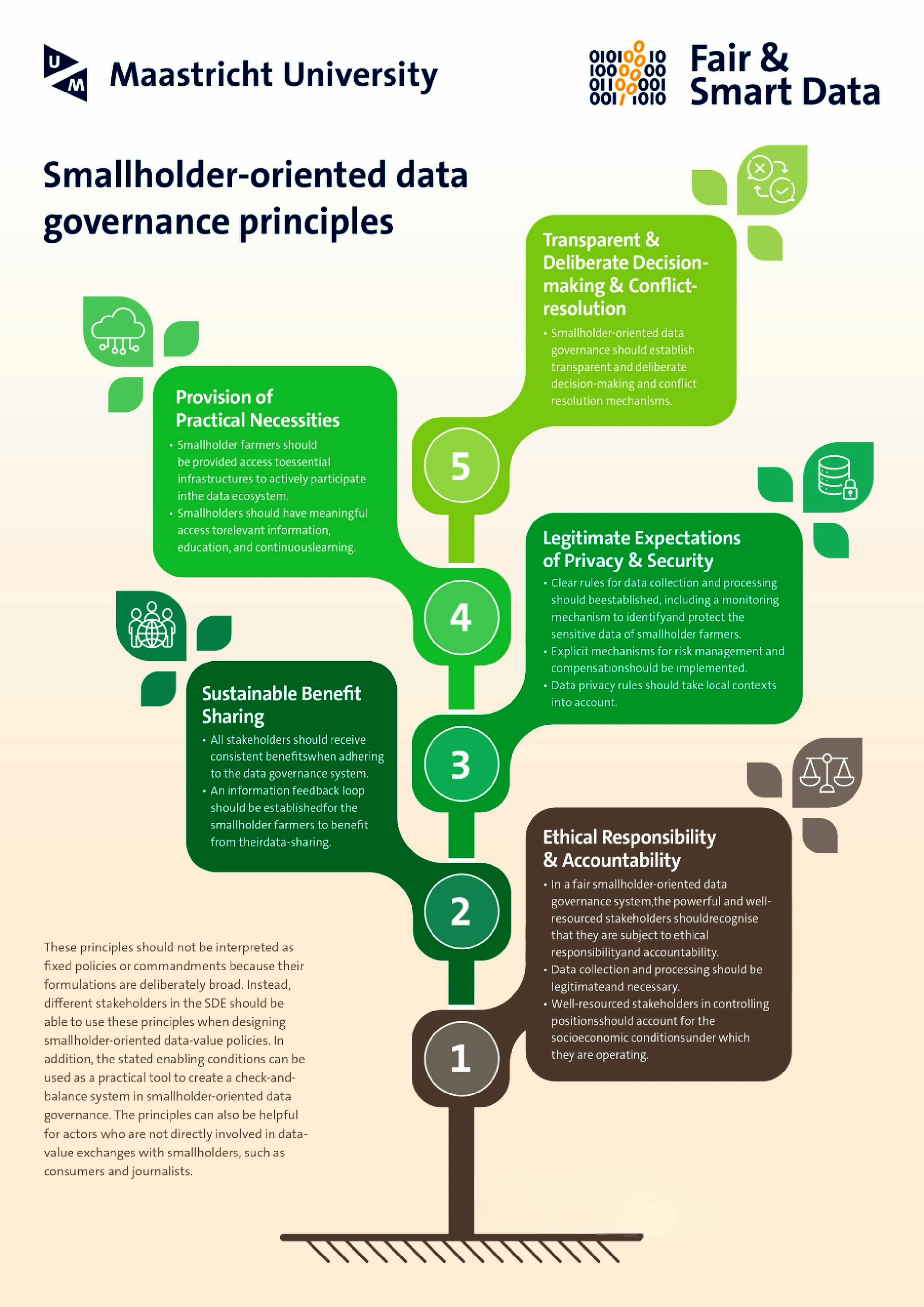FSD's New Report on Smallholder-oriented Data Governance
We are glad to unveil our Smallholder-oriented Data Governance report. We aim through this report to stir debate and drive consensus among the stakeholders in the data ecosystem of smallholder farmers to lay the foundation for a fair and efficient data governance system.
Download the report here.
In the report, we define the smallholder data ecosystem as comprising multiple stakeholders with asymmetric power, knowledge, and resource access levels. These stakeholders should handle smallholder farmers’ data responsibly and transparently to empower and avoid harm. Smallholder-oriented data governance requires the more powerful and well-resourced stakeholders to commit to fair treatment and compensation of smallholder farmers.
The report defines smallholder farmers, informed consent, and a fair data ecosystem. Further, it presents a set of principles that a data governance system should have to ensure fair and sustainable benefit sharing from smallholders' data. The principles should not be interpreted as fixed policies or commandments because their formulations are deliberately broad. Instead, different stakeholders in the smallholder data ecosystem should be able to use these principles when designing smallholder-oriented data-value policies. In addition, the enabling conditions of the principles can be used as a practical tool to create a check-and-balance system in smallholder-oriented data governance. The principles can also be helpful for actors who are not directly involved in data-value exchanges with smallholders, such as consumers and journalists.

Also read
-
A strong education network for Brabant and Limburg: better alignment, less dropout
On November 24, 2025, secondary schools (VO) and higher education institutions (HO) in Brabant and Limburg will sign up for the Education Network South Netherlands: one VO-HO network that will improve the flow of students to further education and reduce dropout rates.

-
Andrés Caceres Solari on No room for Human Rights in Gaza and Ukraine: How the Law Legitimizes Urban Devastation
Pick Our Brains Session with Andres Caceres Solari

-
AMIBM hosts the final Realise-Bio conference
The Aachen Maastricht Institute of Biobased Materials (AMIBM) hosted last week the third and final Realise-Bio annual conference, bringing together the Dutch and German bioeconomy ecosystems at the Brightlands Chemelot Campus.
